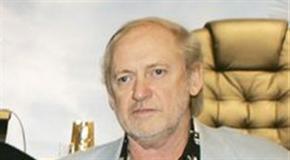Features
Doctor: Concert Promoter In $200 Million Fraud Is Bipolar

Psychiatrist Michael Hughes said Jack Utsick, 73, had many classic hallmarks of bipolar disorder such as visions of grandiosity, inflated self-esteem and excessive activities that can have painful consequences. Utsick also likely truly believed he was not ripping off thousands of investors in his Worldwide Entertainment Inc. company, the doctor added.
“He always felt he was the smartest guy in the room and that he could beat the system,” Hughes said. “If he had a disappointment, he couldn’t tolerate that. He had to find a way to overcome it.”
Later, Hughes said his recent examinations show Utsick hasn’t changed much. “He still thinks that way. I wouldn’t invest with him,” he testified.
Utsick pleaded guilty to mail fraud in June after his extradition from Brazil in 2014. Prosecutors say Utsick fleeced nearly 3,000 investors by hiding a decade of Worldwide Entertainment Inc.’s losses and promising double-digit returns.
Prosecutors have asked U.S. District Judge Cecilia M. Altonaga to sentence Utsick to more than 17 years behind bars, while his attorney wants about six years. Much of Friday’s all-day hearing featured defense witnesses testifying about Utsick’s illness and character as a businessman.
Altonaga postponed Utsick’s sentencing until Tuesday.
Worldwide did promote thousands of shows by major artists from 1995 to 2006 and owned several concert venues, but court documents show it was losing money every year. Defense attorney Eric Lisann said Utsick never intended to defraud investors and hoped to turn the company’s fortunes around before it was effectively shut down by the Securities and Exchange Commission in 2006.
Before his company’s implosion, Utsick was considered one of the top independent concert promoters in the business, according to friends and associates.
“I think Jack was doing fine, he just spread himself a little too thin,” testified Bruce Glatman, a promoter who began as part of the team that staged the Woodstock festival in 1969. “I trusted him. I went into business with him.”
But attorney Michael Goldberg, a court-appointed receiver who took over the company after the SEC action, said it became clear quickly that Utsick was operating a Ponzi scheme; older investors were being paid with money from new ones and no actual profits being earned.
“This is the definition of a Ponzi scheme,” he testified.
Many of the wronged investors were former airline pilots, as Utsick had been before he went into the concert promotion business. A court-appointed receiver has been able to return only about $34 million of the $207 million in estimated losses to the investors, court documents show.